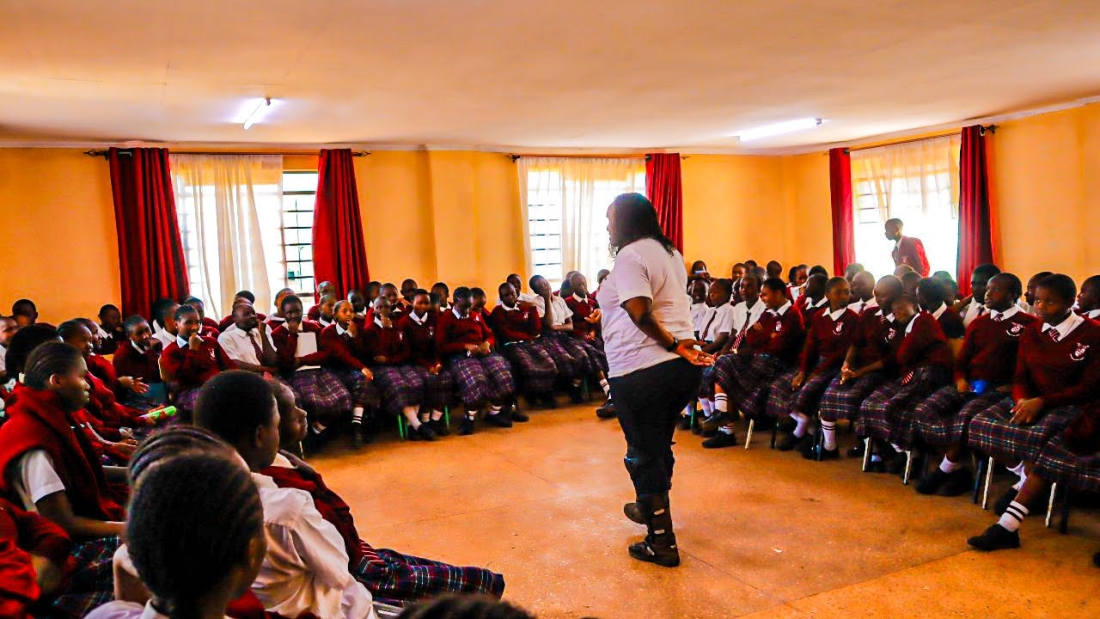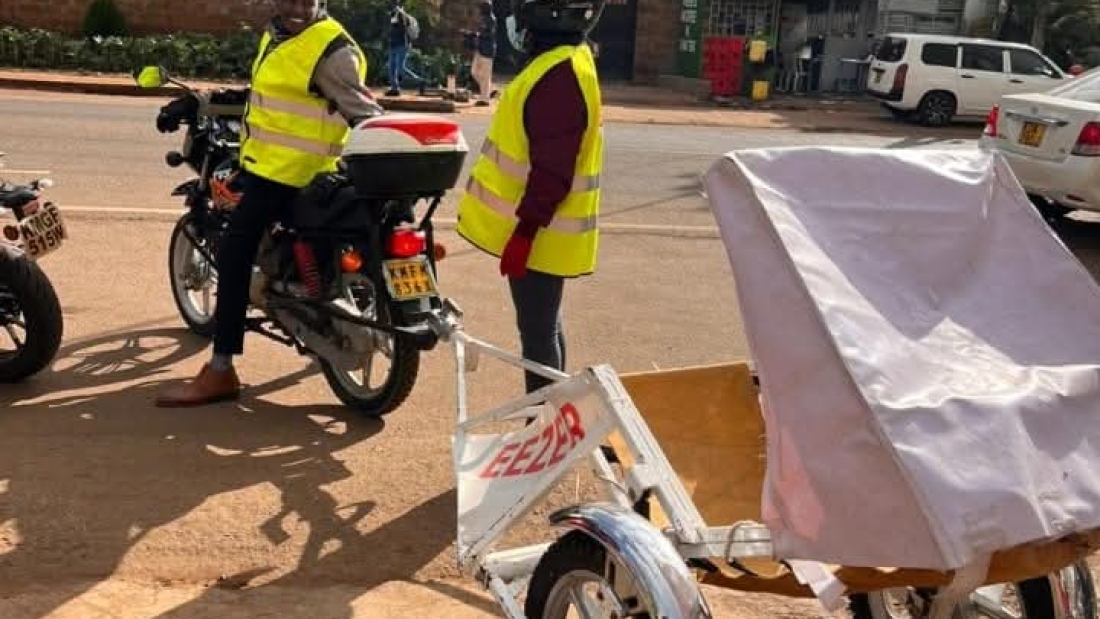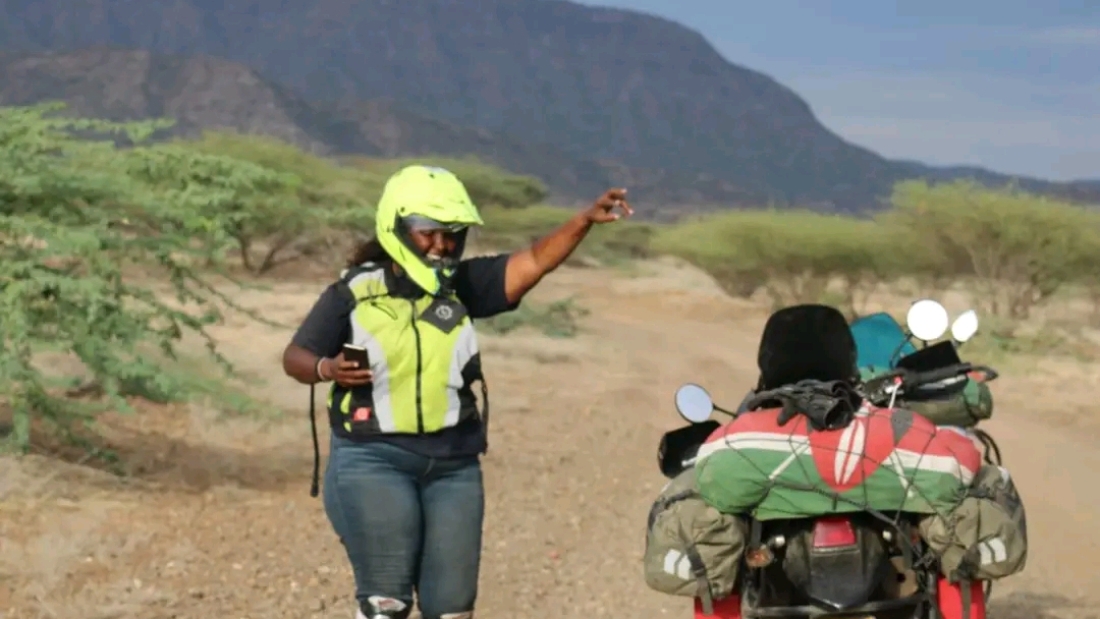This year, my mission is clear: Riding for Impact. As a motorcycle adventure rider traversing Kenya’s diverse landscapes, my work focuses on three critical areas that demand our attention:
- Education – Amplifying the stories of children and the challenges they face in Kenyan schools
- Health – Advocating for better access to menstrual hygiene products and healthcare in underserved communities
- Cultural Preservation – Documenting the traditions, struggles, and resilience of different Kenyan communities
Through my rides, I venture into the unseen and unheard corners of Kenya, immersing myself in diverse cultures and using my platform to spark critical conversations that shape our communities and country.
The Hidden Crisis in Dagoretti: When Children Speak Truth
My journey recently took me to Dagoretti in Nairobi County, where what I expected to be a simple school visit transformed into a moment of profound revelation.
A young girl stood up, her voice barely above a whisper yet carrying the weight of something deeply painful. She spoke of fear—fear in her own home. Before I could fully absorb her words, another student responded, revealing just how deeply ingrained misconceptions and silence are in Kenyan society.
Later that day, I listened to a group of boys share their own struggles—feelings of confusion and embarrassment about their natural bodily changes, experiences they felt they couldn’t discuss without shame. These were the authentic voices of Kenyan children, their struggles, their realities. And yet, as a society, we often look away, leaving them to navigate these challenges alone.
This moment was a stark reminder of why we must act.
Menstrual Mental Voice: Creating Safe Spaces for Kenyan Youth
Last year, together with Street Talent Africa, we launched Menstrual Mental Voice, a project dedicated to creating safe spaces for students to have honest conversations about their physical, mental, and emotional well-being. We started with six schools in Dagoretti, but this is only the beginning.
Our mission will culminate in a mega event on May 28, 2025, bringing together students, school leaders, religious and community elders, political figures, and key government ministries to address the pressing issues affecting young people in Kenyan schools.
Sex for Pads: The Harrowing Reality of Period Poverty in Kenya
In these conversations, one story kept surfacing—a silent crisis unfolding in many Kenyan neighborhoods. A crisis where young girls, some as young as 12, are forced to trade their bodies for something as basic as sanitary pads.
For these girls, menstruation is not just a biological process; it is a source of shame, fear, and exploitation. When parents cannot afford to buy pads—whether due to poverty, ignorance, absenteeism, or addiction—the girls are left to find their own solutions. In some homes, the choice between food and sanitary products is a painful one, and food often wins. But menstruation does not pause for poverty.
Desperate and without options, these girls turn to anyone willing to “help.” Sometimes, it’s a “friend,” a man in his 30s or older, who takes advantage of their vulnerability. Other times, it’s a boda boda rider, a neighbor, a caretaker, or even a boyfriend. The exchange is rarely innocent—it comes at a devastating price. The men who “help” often mock them, saying:
“Wacha nikusaidie na 9 months hautakuwa na periods.” (Let me help you, and for nine months, you won’t have periods.)
The cruelty in those words is a stark reminder of the power imbalance at play in Kenya’s period poverty crisis.
These tragic transactions happen in the most degrading of settings—inside shared toilets, in bushes, in men’s houses. The psychological and emotional toll on these Kenyan girls is unimaginable. They are forced to sacrifice their dignity and safety just to manage a natural bodily function.
Beyond Pads: Addressing the Root Causes of Period Poverty in Kenya
The repercussions are devastating. Teenage pregnancies are on the rise in Kenya, trapping young girls in a cycle of poverty and dependency. Many of these young mothers must now juggle school, survival, and childcare, often using unhygienic alternatives like mattress sponges as makeshift pads. The trauma of their experiences lingers, shaping their futures in ways that are difficult to undo.
But amidst this grim reality, there is hope. Community-led initiatives across Kenya are stepping up to tackle this crisis head-on:
- Pad Banks – Collection points where anyone can donate sanitary pads for Kenyan schoolgirls
- Community Conversations – Engaging parents, teachers, and local leaders to break the stigma surrounding menstruation
- Policy Advocacy – Pushing for better implementation of Kenya’s free sanitary pad distribution program in schools
While the Kenyan government has allocated a budget for free sanitary pads in public schools, implementation remains inconsistent. The gap between policy and reality is a chasm swallowing the futures of young Kenyan girls.
Join the Movement: Riding for Impact Against Period Poverty
As members of Kenyan society, we must ask ourselves: What role do we play in this crisis? Providing pads is not enough. We must address the root causes of period poverty—poverty itself, ignorance, and systemic neglect. We must create a world where no Kenyan girl has to choose between her dignity and her survival.
How You Can Help Fight Period Poverty in Kenya
- Donate Supplies: Support our pad banks by donating menstrual products or funds
- Raise Awareness: Share these stories and break the silence around menstruation
- Advocate for Change: Hold local leaders accountable for implementing existing policies
- Volunteer: Join our community conversations and school programs
- Partner With Us: Organizations can collaborate on larger initiatives
This is why I ride. This is why I tell these stories. Because change begins with awareness. Change begins with us.
If we truly care about Kenya’s future, we must break the silence around period poverty. We must talk. We must listen. We must act.
Join me on this journey. Let’s ride for impact against period poverty in Kenya.
Contact us: info@kagwiriamurungirides.africa
Follow the journey: Kagwiria Murungi Rides across all socials
Support our cause: https://kagwiriamurungirides.africa/support-the-course/




